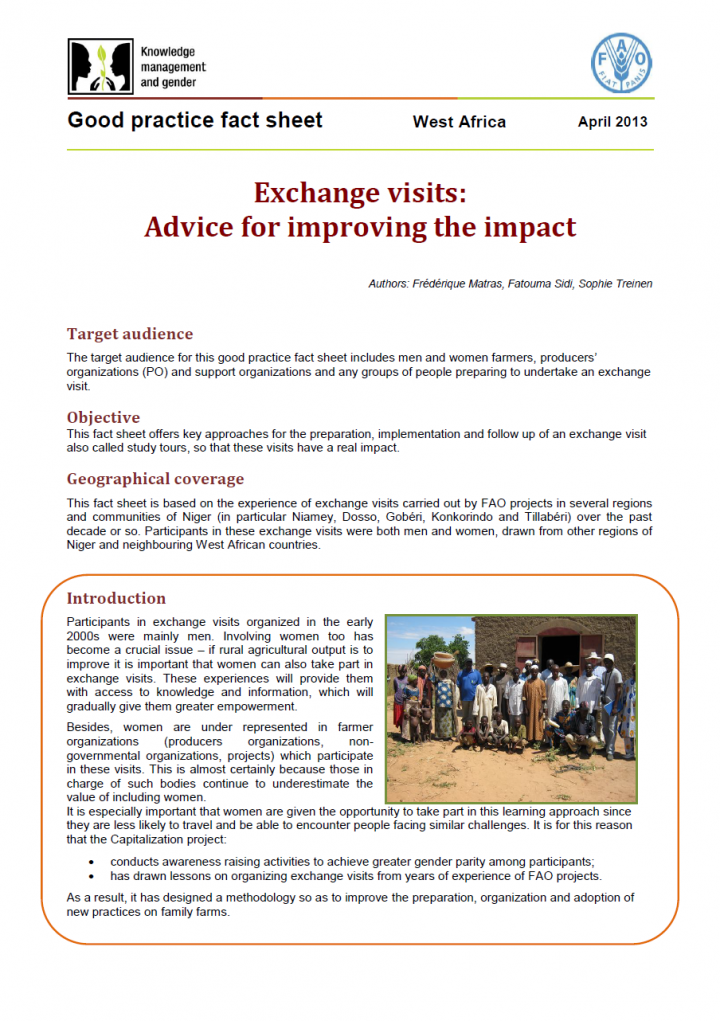Exchange Visits: Advice for Improving the Impact. Knowledge Management and Gender
Matras F., Sidi, F., Treinen, S. (2013)

Published in: 2013
Pages: 12
Author:
Matras F., Sidi, F., Treinen, S.
Uploaded by:
SuSanA Admin
Partner profile:
common upload
1121 Views
5 Downloads
Introduction: Participants in exchange visits organized in the early 2000s were mainly men. Involving women too has become a crucial issue – if rural agricultural output is to improve it is important that women can also take part in exchange visits. These experiences will provide them with access to knowledge and information, which will gradually give them greater empowerment. Besides, women are under represented in farmer organizations (producers organizations, non-governmental organizations, projects) which participate in these visits. This is almost certainly because those in charge of such bodies continue to underestimate the value of including women.
It is especially important that women are given the opportunity to take part in this learning approach since they are less likely to travel and be able to encounter people facing similar challenges. It is for this reason that the Capitalization project:
- conducts awareness raising activities to achieve greater gender parity among participants;
- has drawn lessons on organizing exchange visits from years of experience of FAO projects.
As a result, it has designed a methodology so as to improve the preparation, organization and adoption of new practices on family farms.
Bibliographic information
Matras F., Sidi, F., Treinen, S. (2013). Exchange Visits: Advice for Improving the Impact. Knowledge Management and Gender.
Filter tags
English Factsheets and policy briefs Gender equality Sub-Saharan Africa Women's rights & representation and empowerment














